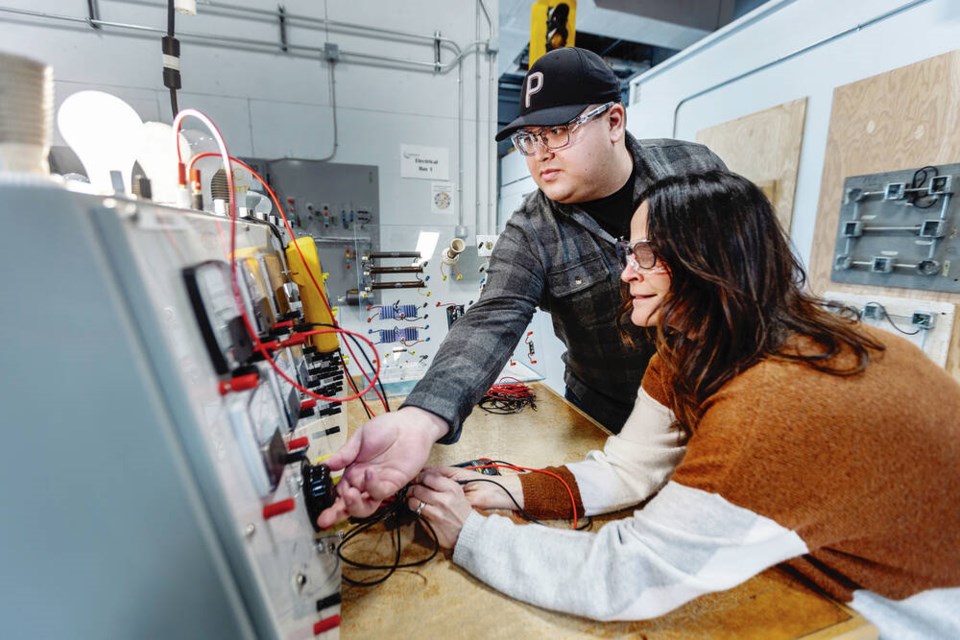Mackenzie Kwaksistala once had to work as a bouncer to make ends meet while going to school.
While it’s too late for him, the announcement of a $500,000 grant to help students enrolled in Camosun College’s Empowering Indigenous Students in Trades program means an easier path for future students wanting a career in the construction trades.
Kwaksistala, a fourth-year electrical trades student, graduates in May to a market desperate for skilled tradespeople such as him.
But Indigenous students, who represent only 10 per cent of students enrolled in the trades program in the college, often face a number of challenges, from financial difficulties to lack of support.
The donation from TD Bank Group will enable the program to pay for an Indigenous co-ordinator, program development, outreach and networking for students over the next three years.
Kwaksistala said he likes the idea that the funding will provide future students with wraparound supports.
The new funding will cover everything from student fees to books, supplies, housing, transportation, childcare, assistance with tools, protective equipment and cultural activities.
“The cost of living in Victoria is through the roof, ” said Kwaksistala, who is from Campbell River. “Funding means students will be able to stay focused on studies and not looking for work all the time — like I had to. The accessibility of the funds without bureaucracy is truly appreciated.”
The 27-year-old also likes the idea of having an Indigenous co-ordinator.
“It’s nice to deal with a real person, instead of a random person by email or phone,” he said. “It’s nice to be able to talk to a person, explain your problem and need — and for them to come up with a solution.”
The support system will be available for Indigenous trades students throughout their four-year apprenticeship journey to becoming Red Seal-certified.
Larry Underwood, one of three co-ordinators in the Indigenous Peoples in Trades Training Initiative, said the goal is to provide Indigenous students with personalized support. “We meet students where they are at to build lasting relationships to help them succeed.”
Underwood said he shares his experience in mentoring First Nations students with instructors, to help them understand that culturally, most respond best to learning when in a relationship.
“I learned from my grandmother in that way,” said Underwood, who spent 25 years working in the trades.
The trades training program currently has 23 Indigenous students enrolled, compared with 65 pre-COVID-19. Trades courses include electrical, automotive, welding, sheet-metal and a “trade-sampler,” where students unsure of which trade they would like to specialize in can sample a number of them before deciding.
College president Lane Trotter said Camosun is “incredibly grateful” for the funding from TD, as it enables the college to “continue providing wraparound supports to Indigenous students in trades, allowing them to build successful careers.”
The grant will help the college establish “an inclusive learning environment that celebrates Indigenous cultures and fosters even more opportunities for students to thrive.”
>>> To comment on this article, write a letter to the editor: [email protected]



